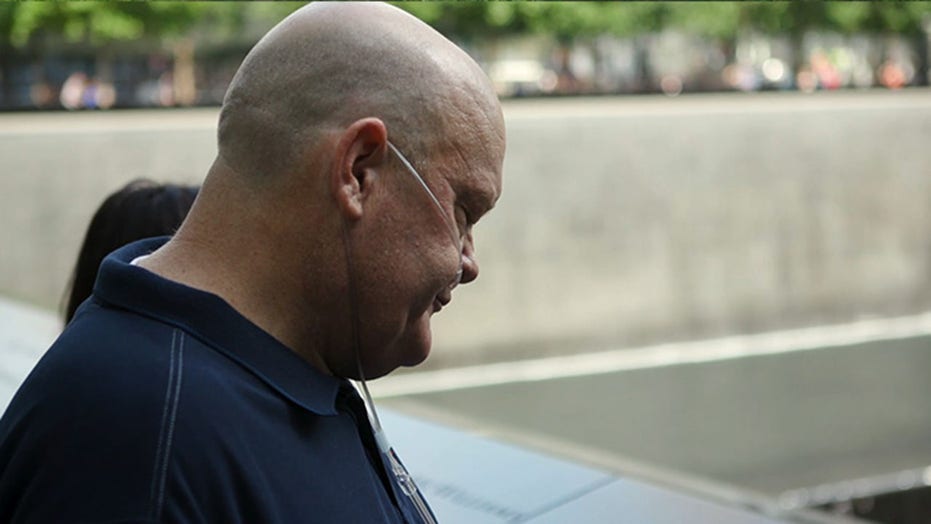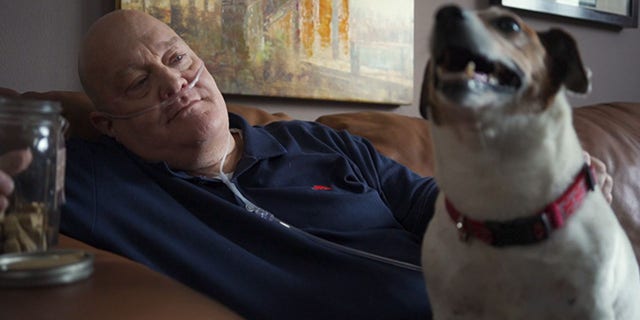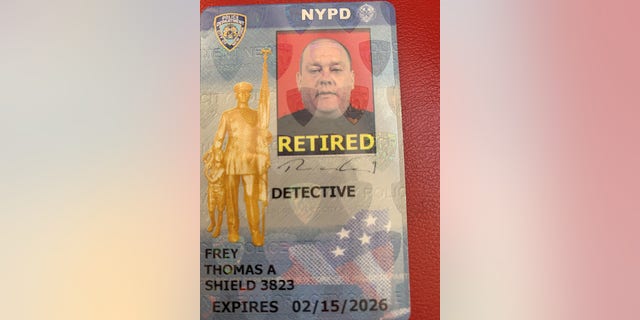9/11 Memorial to exclude first responders, survivors on 20th anniversary
Invitations to ceremony will be limited to family members of victims. Angel Maysonet, 9/11 first responder, with reaction on ‘Fox & Friends First.
It may have been 20 years ago, but 9/11 is still impacting first responders.
Tom Frey, a former New York Police Department detective, spoke with Fox News about his experiences on that day, along with the impact it’s had on his health since. Frey is suffering from pulmonary fibrosis – a terminal condition that is the result of his work on 9/11 and the subsequent recovery efforts.
Frey had been assigned to the Manhattan detective borough. After his partner was “clobbered” with debris, Frey took him to the emergency room. After that, he said, he went back to site of the World Trade Center, which he referred to as “the pile.”
Frey explained that on that fateful day, he had been assigned to the Manhattan detective borough. After his partner was "clobbered" with debris, Frey took him to the emergency room.
(Tom Frey)
“We went to work on the pile, pulling buckets and looking for survivors,” Frey recalled. “We kept doing various assignments: going to the morgue, traveling to DNA testing sites and then heading back to the pile. The death certificates came later.”
He continued, “We weren’t prepared. There were no hazmat suits, no masks. You learned a lot from it. It was a devastating day, which became a devastating year and then a devastating three years.”
Frey spent those years filling out death notifications and talking to loved ones.
“I would do it all over again,” he said, without hesitation. “We all knew the air was bad, you knew you were going to get sick.”
Frey eventually retired and left New York for Florida. He initially moved to help his father, who was sick.
After his diagnosis, Frey says he found the Pulmonary Fibrosis Foundation. These days, he works with the foundation running a monthly support group.
(Tom Frey)
Frey said that in 2016, he was feeling fine when he went in for a routine check-up and was then diagnosed with Hodgkin’s Lymphoma. During the ninth round of chemotherapy, he developed shortness of breath.
Frey was later diagnosed with pulmonary fibrosis and was given one year to live.
Five years later, Frey is still alive. He said he has good days and bad days, though each month is full of doctor’s appointments. He suffers from shortness of breath, is often extremely tired and he can’t stand for long periods of time, he said.
After his diagnosis, Frey found the Pulmonary Fibrosis Foundation (PFF). These days, he works with the foundation running a monthly support group.
“People are scared,” Frey said of new group members. “Being told you have a year or two to live is like a jail sentence. People are looking for answers. We talk to them about oxygen, hospice, home care. We walk them through getting their affairs in order. We bring it to reality.”
The PFF also helps connect people with various doctors, including pulmonologists, who Frey said are key.
Frey eventually retired and left New York for Florida. He initially moved to help his father, who was sick.
(Tom Frey)
Frey said working with the 9/11 Victim Compensation Fund has brought about its own problems. Frey described the various complications he’s run into with getting oxygen tanks and medications. Doctors working with patients through the fund are getting paid slowly, according to Frey.
“A lot of first responders are getting diagnosed with terminal cancer,” Frey explained, adding that every other week, someone else is contacting him.
“It’s unfair to the people going through different illnesses,” Frey said, adding that first responders suffering from cancer are regularly dealing with two-hour wait times when calling for help.
Sometimes, he explained, “nobody’s picking up the phone,” especially for help outside of New York City.
Frey said that people looking for help can contact the various police unions.
Frey also hopes that anyone else suffering from pulmonary fibrosis contacts the PFF. “They help get doctors, mental health, providing info on new treatments and experimental treatments,” he said.
He continued, “Not everyone likes to talk to people that are terminally ill. We’re here for you. You have someone to talk to.”
Source: Read Full Article



